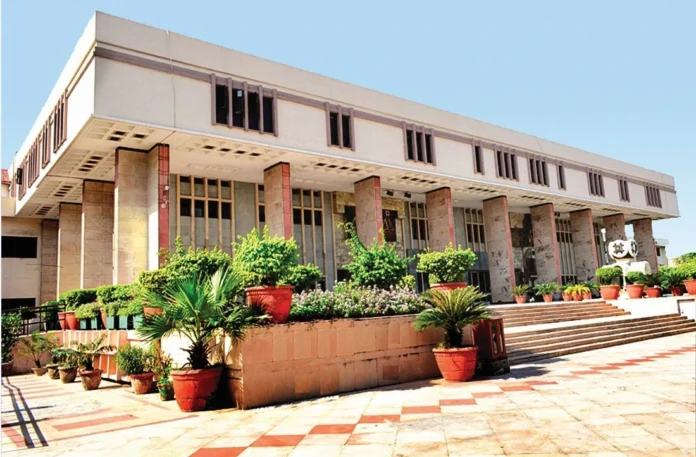By Sujit Bhar
The disaster called demonetisation, suddenly imposed on unsuspecting Indians nearly a decade ago, still shows up sometimes, fangs bared. Having destroyed umpteen human dreams and even lives in its heydays, the spectre of demonetisation doesn’t seem to have run out of appetite, yet.
Even today individuals and companies continue to suffer under the legacy of that flawed policy—particularly through coercive actions by various arms of the government such as the Income Tax Department, Enforcement Directorate, and other investigative agencies. Businesses that deposited their legitimate earnings via the chaotic demonetisation window continue to be hounded under suspicions of money laundering or tax evasion, often without sound legal basis.
A recent judgment of the Delhi High Court in JG’s Departmental Store vs Income Tax Officer Ward 60(1) & Ors clearly illustrates this continuing saga of harassment. The Court’s ruling not only provided immediate relief to the aggrieved firm, but also served as a broader critique of arbitrary executive actions. The order also highlighted the critical role the judiciary must play in shielding citizens from the state’s illegal overreach.
The case before the High Court bench of Justices Vibhu Bakhru and Tushar Rao Gedela concerned reassessment proceedings initiated against a partnership firm, JG’S Departmental Store, under Section 148A(d) of the Income Tax Act, 1961. The income tax officer had flagged the firm for cash deposits made during the demonetisation period, alleging that these deposits were disproportionately high compared to the (deposits made in the) preceding financial year. However, crucially, the notice issued under Section 148A(b)—which requires the Department to provide an opportunity for the assessee to respond to the grounds of reassessment—did not mention this specific allegation.
As per legal procedure, the Income Tax Department must issue a notice under Section 148A(b) specifying the basis of its suspicion and allow the taxpayer to present its side before proceeding further. The notice under Section 148A(d), which actually opens the door to reassessment, can only be issued after considering the assessee’s response.
The High Court bench observed: “Concededly, there was no allegation in the notice issued under Section 148A(b) of the Act that the cash deposited by the assessee in its bank account during the demonetization period was disproportionately higher in comparison with the cash deposited during the corresponding period in the previous financial year. Thus, the assessee had no opportunity to provide any explanation in respect of such allegation.”
Consequently, the Court set aside the reassessment proceedings, underscoring that the principles of natural justice—particularly the right to be heard on all allegations—cannot be dispensed with, even in matters concerning suspected tax evasion.
This judgment is significant because it exposes how government agencies have, for years, indiscriminately pursued cases without adhering to due process, exploiting the panic and confusion that demonetisation had engendered.
The JG’s Departmental Store case is far from an isolated incident. Numerous Indian businesses, especially small and medium enterprises, have faced relentless scrutiny and harassment for complete legitimate cash deposits made during demonetisation. It is as if government agencies—and the government, in the main—are bent on terrorising the business community at whatever pretext possible. It is the terror of GST today, but the spectre of demonetisation is still used by these various agencies to demonise legitimate businesses. It is as if doing business in India today is a crime.
Here are some other prominent cases:
- The Patanjali Ayurved case: The Income Tax Department initiated reassessment against Patanjali Ayurved, alleging undisclosed income during the demonetisation period. However, Patanjali’s audited accounts showed that the cash deposits were from daily retail sales, which was a pattern consistent with their operations even prior to demonetisation. Yet, the firm—and we are talking about a firm that is close to the ruling dispensation at the centre—was forced into long-drawn reassessment proceedings.
- Small traders and kirana stores: Thousands of small traders who, before demonetisation, traditionally dealt largely in cash, found themselves facing notices from the Income Tax Department, asking for explanations of deposits made during the demonetisation window. In many cases, no substantive suspicion was outlined; notices were issued based purely on the quantum of cash, regardless of the nature of the business or historical turnover. Here is an interesting example: A vegetable wholesaler in Pune had deposited Rs 12 lakh, accumulated from years of savings and daily cash sales. He faced investigation under the Prevention of Money Laundering Act despite having all sale invoices and tax filings in order.
- NGOs and religious institutions: Several religious trusts and non-governmental organizations (NGOs) were subjected to harassment after they deposited cash donations received from devotees and patrons. Some well-established temples, including ones under state management, faced inquiries questioning the legitimacy of donations, even though no prior suspicion had been raised against them.
These examples collectively reveal a troubling trend: an assumption of guilt based purely on the act of depositing cash, with little regard for contextual or historical realities. The High Court’s verdict could and should be used as a precedent to eradicate this menace, once and for all.


